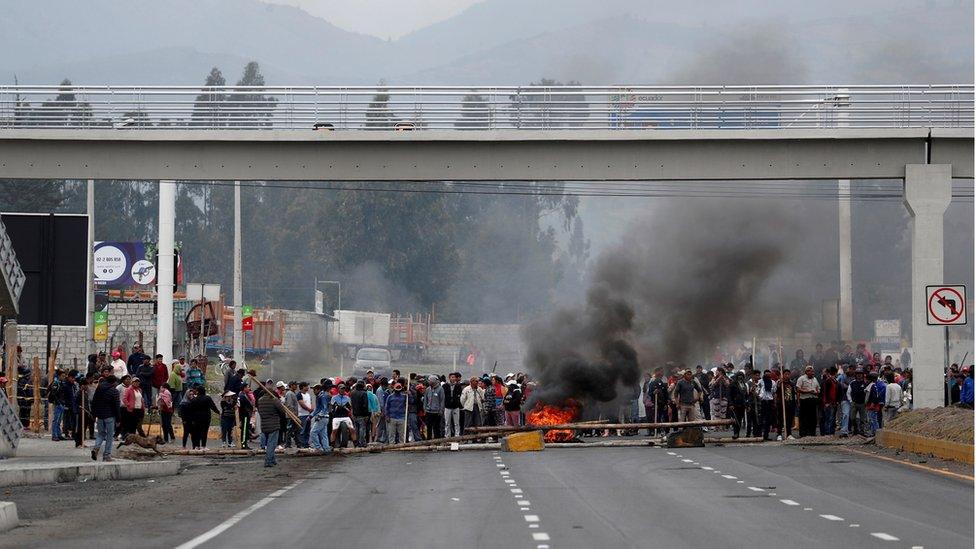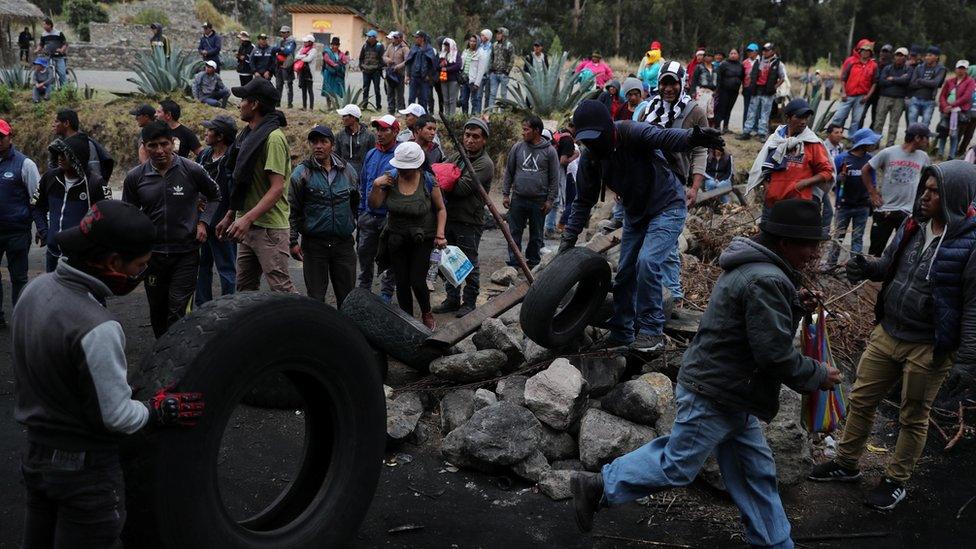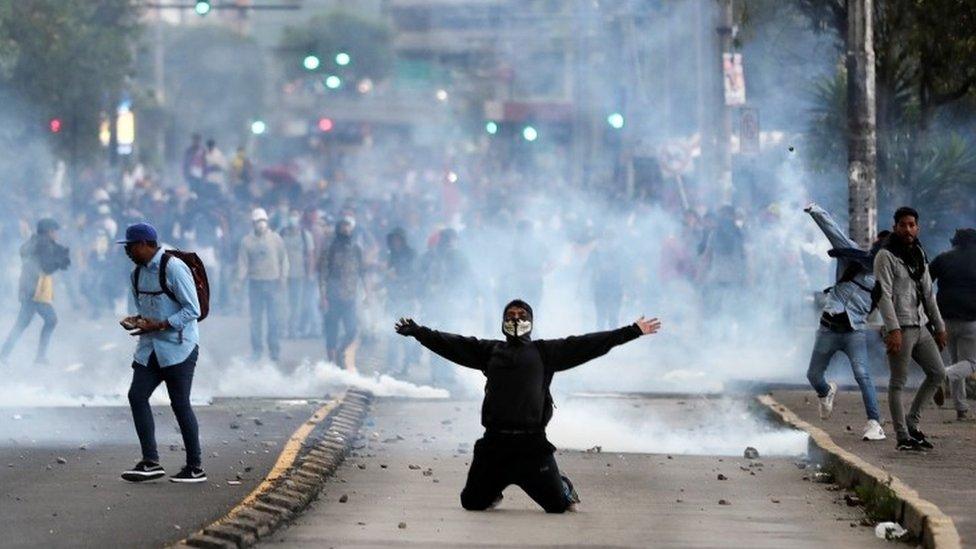Ecuador protests: Indigenous groups block highways as protests continue
- Published

Protesters have blocked roads and highways across the country
Indigenous groups in Ecuador have taken the lead in protests against the end of fuel subsidies, blocking roads and highways in the country.
About 50 police officers have been taken hostage in various locations.
President Lenin Moreno says he will not bring back subsidies and has declared a two-month national emergency.
The protests were originally led by transport unions who have since stopped their action. Other sectors are calling for a national strike on Wednesday.
Ecuadorians say abolishing fuel subsidies has also led to rising prices for consumer goods. About 20 people have been arrested for raising food prices, the government said.
They had been overcharging for products such as corn, onions, carrots and potatoes, which are subject to price controls, the authorities said.
"There is no justification for raising the prices," Interior Minister Maria Romo said.
One man died in the Andean province of Azuay in the south of the country, the government said. Reports said roadblocks in the area had stopped an ambulance from reaching him after he was hit by a car.
How significant is the indigenous groups' action?
Some of the road blockages have affected petrol deliveries, leading to fuel shortages in parts of the country.
They have affected routes including the main north-south highway in the country.
In some places, protesters threw stones and rocks, clashing with security forces who fired tear gas.
An umbrella group for indigenous groups in the country, the Confederation of Indigenous Nations in Ecuador (Conaie) said it was declaring a "state of exception" in indigenous areas, external, where soldiers and police officers would be detained and would face "indigenous justice".

Protesters block a road in Cangahua near the capital Quito
Luis Iguamba, leader of the Kayambi people from northern Ecuador, said they would keep up the pressure on the government.
"We are fighting for everyone and we are fighting to foresee the rights we all have and we can't allow this. So, everyone, be on the lookout and keep up the fight. Let's radicalise the strike," he said.
Schools are to remain closed in Andean areas of the country because of the protests, EFE news agency quoted the education minister as saying.
The BBC's Americas Editor Candace Piette says indigenous-led protests have toppled three presidents in the last few decades.
Their intervention follows protests on Thursday and Friday that saw roads in the capital Quito and the city of Guayaquil strewn with makeshift barricades and burning tyres.
Tear gas fired as protests flare in Ecuador
Hundreds of people were arrested, dozens of police officers hurt, several police cars destroyed and a local government building was attacked, the authorities said.
Why did the president scrap the subsidies?
Mr Moreno said the fuel subsidies, which cost the government $1.3bn (£1bn) annually, were no longer affordable.
The elimination of the fuel subsidies, introduced in the 1970s, are part of Mr Moreno's plan to shore up Ecuador's flagging economy and ease its debt burden.
Ecuador's government has agreed to cut public spending as part of a loan deal with the International Monetary Fund (IMF).
The agreement, signed in March, allows Ecuador to borrow $4.2bn (£3.4bn).
On Tuesday, Ecuador announced it was leaving the Organization of the Petroleum Exporting Countries (Opec) to pump more oil and raise revenues.
- Published5 October 2019
